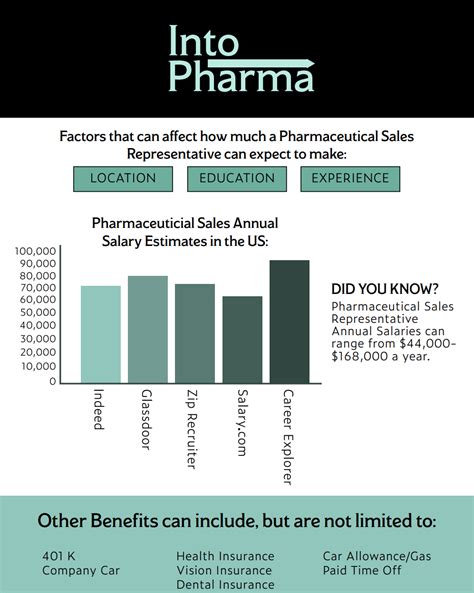Introduction
The pharmaceutical industry plays a crucial role in the development, production, and distribution of essential medicines, offering a wide array of career opportunities with competitive salaries. This comprehensive article delves into the various pharmaceutical jobs, their responsibilities, and the associated salary ranges. By understanding the compensation structure, job seekers can make informed decisions in their career pursuits.

Pharmaceutical Job Market Overview
According to a report by the Bureau of Labor Statistics (BLS), the pharmaceutical industry employs over 500,000 individuals across the United States. The industry is expected to experience steady growth in the coming years due to the increasing demand for new and innovative treatments. This growth will create ample job opportunities for qualified candidates.
Salary Ranges for Pharmaceutical Jobs
The salary ranges for pharmaceutical jobs vary depending on factors such as experience, education, location, and company size. However, the industry typically offers competitive compensation packages. The following table provides an overview of salary ranges for some common pharmaceutical jobs:
| Job Title | Salary Range |
|---|---|
| Research Scientist | $70,000 – $150,000 |
| Clinical Research Associate | $75,000 – $120,000 |
| Regulatory Affairs Manager | $80,000 – $140,000 |
| Medical Science Liaison | $90,000 – $160,000 |
| Sales Representative | $100,000 – $200,000 |
Educational Requirements and Career Paths
Most pharmaceutical jobs require a bachelor’s or master’s degree in a relevant field, such as biology, chemistry, or pharmacology. For senior-level positions, a doctorate degree may be required. Pharmaceutical companies offer various career paths for employees, with opportunities for advancement and specialization.
Benefits and Perks of Pharmaceutical Jobs
In addition to competitive salaries, pharmaceutical jobs often come with a comprehensive benefits package, which may include:
- Health insurance
- Dental insurance
- Vision insurance
- Retirement plans
- Paid time off
- Flexible work schedules
Common Mistakes to Avoid
When pursuing a pharmaceutical job, it is important to avoid common mistakes that can jeopardize your chances of success. These include:
- Not researching the company and the specific role thoroughly
- Failing to prepare adequately for interviews
- Underestimating the importance of networking
- Not negotiating your salary effectively
Why Pharmaceutical Jobs Matter
Pharmaceutical jobs make a significant contribution to society by improving human health and wellbeing. By working in this industry, individuals can play a vital role in the development of new medicines that save lives and improve quality of life.
Conclusion
The pharmaceutical industry offers a wide range of rewarding career opportunities with competitive salaries and comprehensive benefits packages. By understanding the salary ranges, educational requirements, and career paths associated with pharmaceutical jobs, individuals can make informed decisions about their future in this dynamic and growing field.
